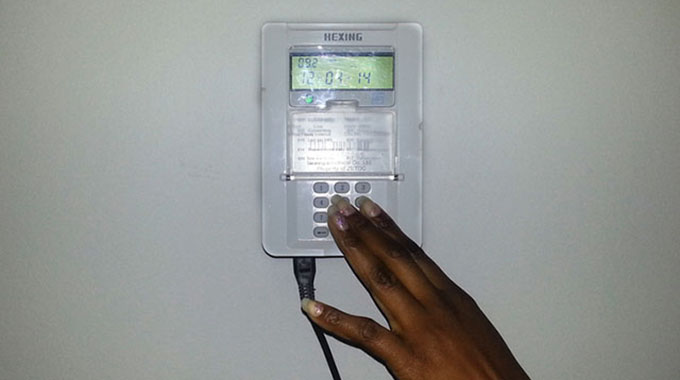Editorial Comment: Zesa must sort out token system

It is time the Zimbabwe Electricity Supply Authority Holdings (ZESA) puts its house in order to ensure the pre-paid electronic system does not continue to inconvenience its customers, with the latest mess occurring at the beginning of a month, when many need to top up.
What is surprising is that whenever the ZESA system goes down, the situation lasts for days, with customers struggling to top-up.
Since Monday this week, people throughout the country could not transact on electronic platforms they use to buy electricity tokens. The reason was that the system was down, with the power supply authority giving reasons to the effect that it has been overwhelmed.
This is not the first time that the ZESA system has gone down, leaving customers with pre-paid metres stranded.
Everyone should have expected the power utility to have fixed the problem a long time ago to ensure a smooth operation.
Someone should be sleeping on duty at the power supply authority at the expense of people who end up struggling to purchase power.
Of course, many people rush to purchase electricity on the first day of each month, but this is because of many reasons, not limited to the earlier misunderstanding created when ZESA raised tariffs.
The misunderstanding resulted in some people believing that following the tariff hike, they could only get more power if they purchased on the first day of the month.
ZESA adequately clarified that everyone can buy their rations of cheaper units at any time during a month, but only with their first purchase of the month. Once the ration of cheaper units is used, or if a user makes a second purchase, the normal tariff applies.
Many electricity consumers seem to have adequately understood this golden rule, and that purchase of the first cheaper 200 units of power can be done any day of the month.
The fact that one gets less power in subsequent purchases within the same month could now be the major reason why many people rush to buy power on the first day of the month, having used all or almost all their 200 cheaper units and unwilling to pay the far higher top-up charges.
If, for example, the token is exhausted five days before the end of the month, instead of purchasing power for the second time within the same month and get less units, many prefer to wait until the first day of the following month.
And ZESA is fully aware of these problems and calculations, which makes it obvious that many people will always be seeking to buy electricity tokens on the first day of the month.
What is needed is for ZESA to upgrade its electronic system to ensure that it is capable of handling the large volumes of purchases that occur on the first day or two of each month.
This time around, the problem has stretched for several days, which clearly shows that it is no longer about issues regarding the first day of the month rush.
It is unacceptable for the ZESA electronic system to go for nearly a week without functioning, as it has become the major method of electricity purchase by the majority.
The power utility’s electronic system partners like banks, whose channels are used to purchase ZESA tokens, have since alerted their customers that the problem lies with the power utility’s system, which is down.
It is advisable that if the system installed by the power utility is no longer capable of containing the numbers, let it be discarded for a new one that can handle the job at hand.
The outrage sparked by the system failure should jostle officials at the entity to ensure that it does not recur.
Many people have been going back home empty handed since Monday this week after thronging Zesa banking halls. They failed to buy the tokens at the banking halls because of long queues.
Many others continued to stay in the dark because they could not get letters to allow them to pass through roadblocks meant to restrict movement to control the spread of Covid-19.
Those who eventually managed to reach the banking halls found themselves in long queues where social distancing was not being observed. This was because the queues were not being controlled to confirm with regulations on social distancing.
We are fully aware that every business faces technical hitches, but these become a cause for concern when they regularly recur, inconveniencing the public.
This calls for ZESA to devise ways that make access to power tokens easy, just like what is being done with airtime which can be obtained even from vendors on the roadside.
It is time for the power utility to live with the reality that a lot of its customers have since migrated from the conventional billing system to prepaid meters.
In light of this, ZESA has to fully understand the electricity consumers’ behaviour, as they can now monitor their own electricity usage and are in complete control of their budgets.
The increase in revenue collection brought by smart metering should reflect through investments in efficient systems that do not inconvenience the paying public.
Otherwise ZESA stands to lose out as some consumers may turn to unorthodox means like by-passing electricity meters in a bid to access power, and the rise in the black market for tokens.
In fact, some unscrupulous people have been inundating social media platforms claiming to offer alternatives in the provision of electricity tokens following this week’s system failure.











Comments